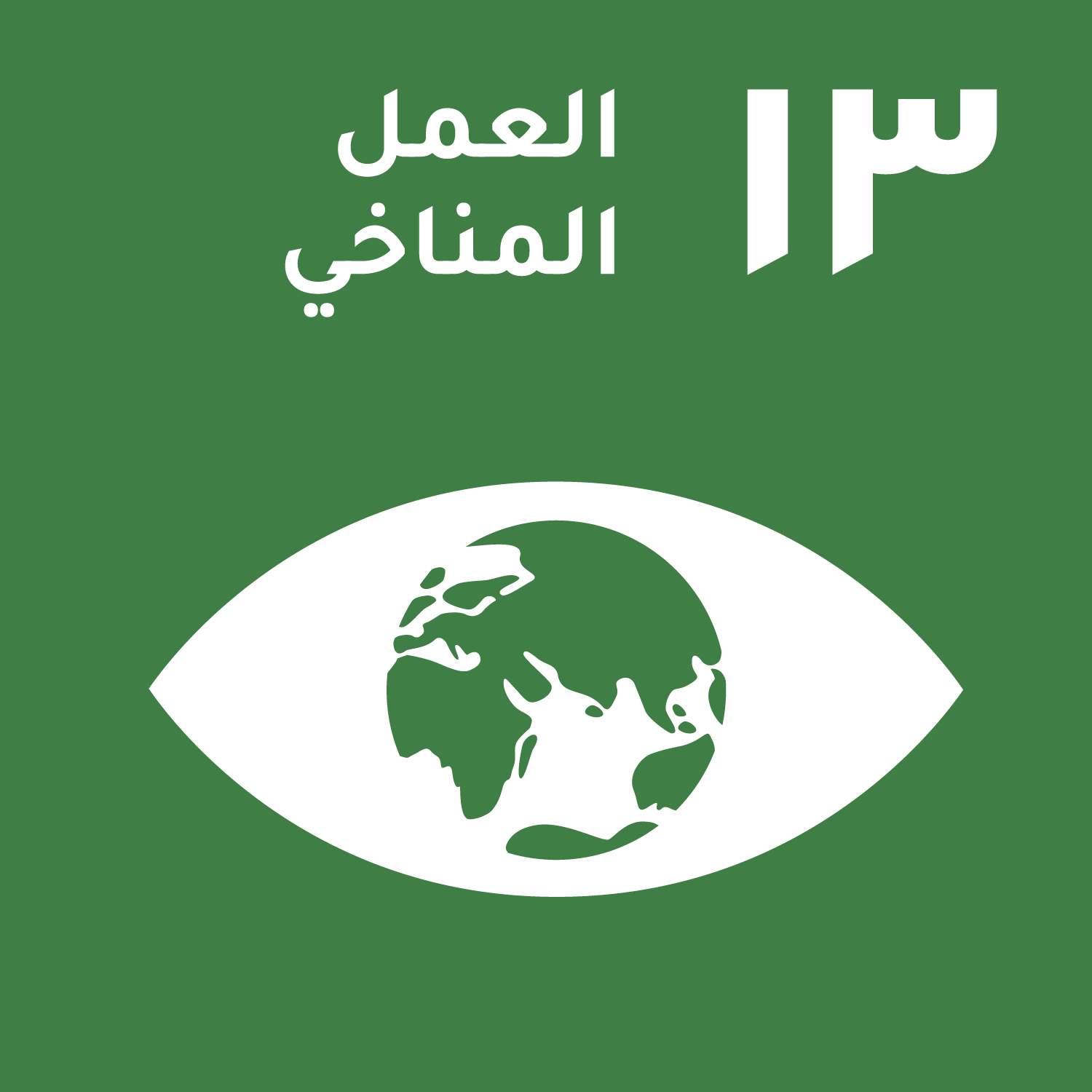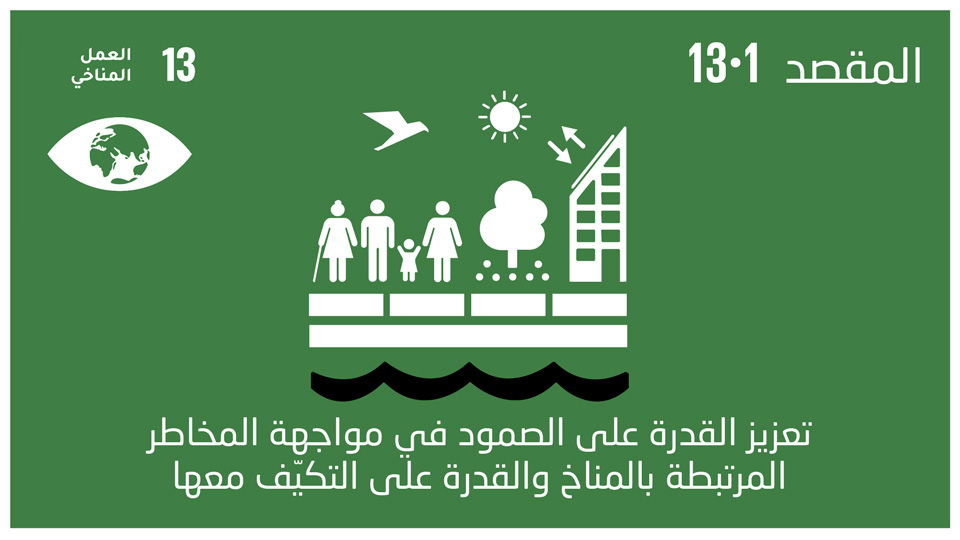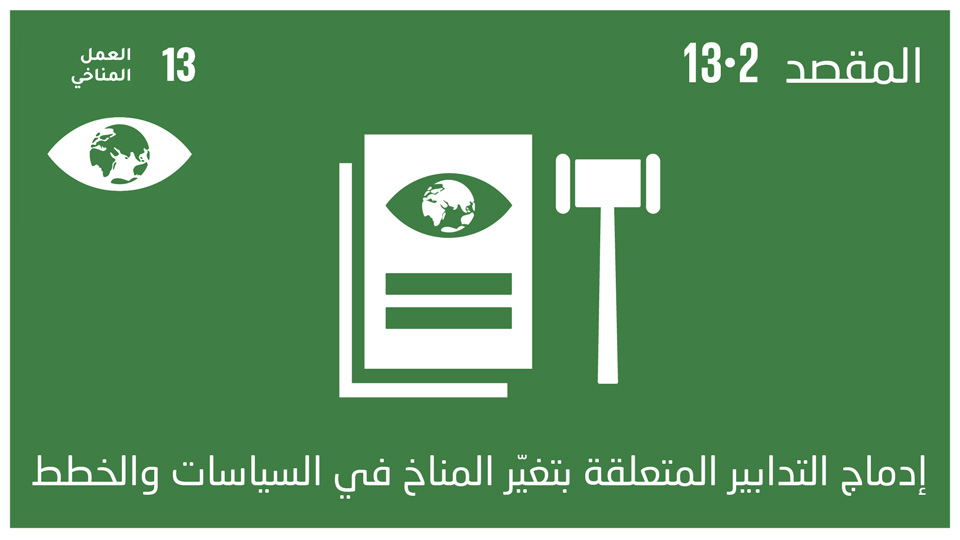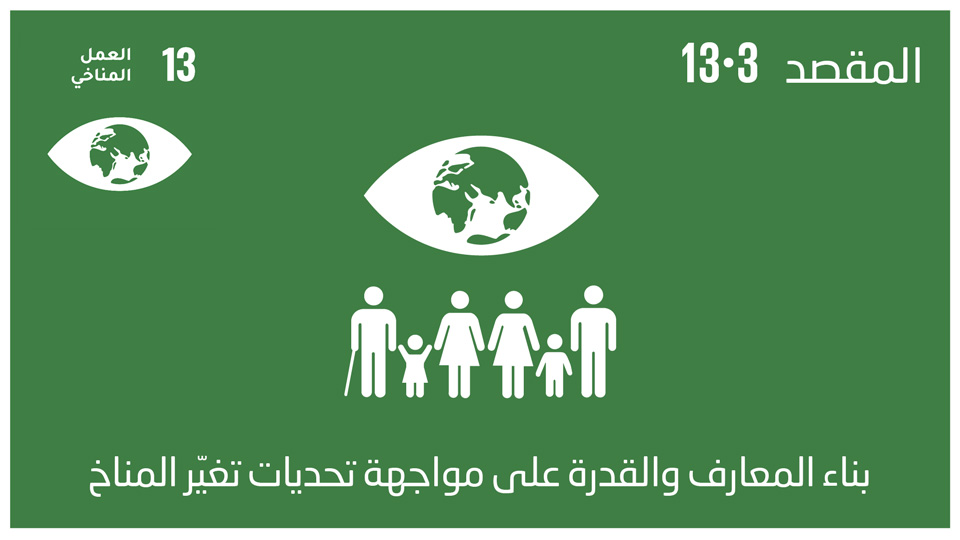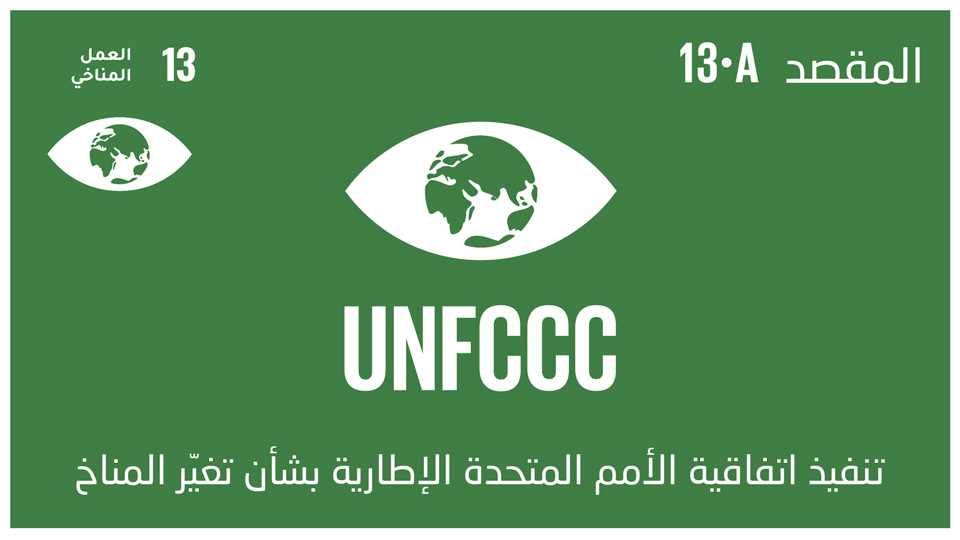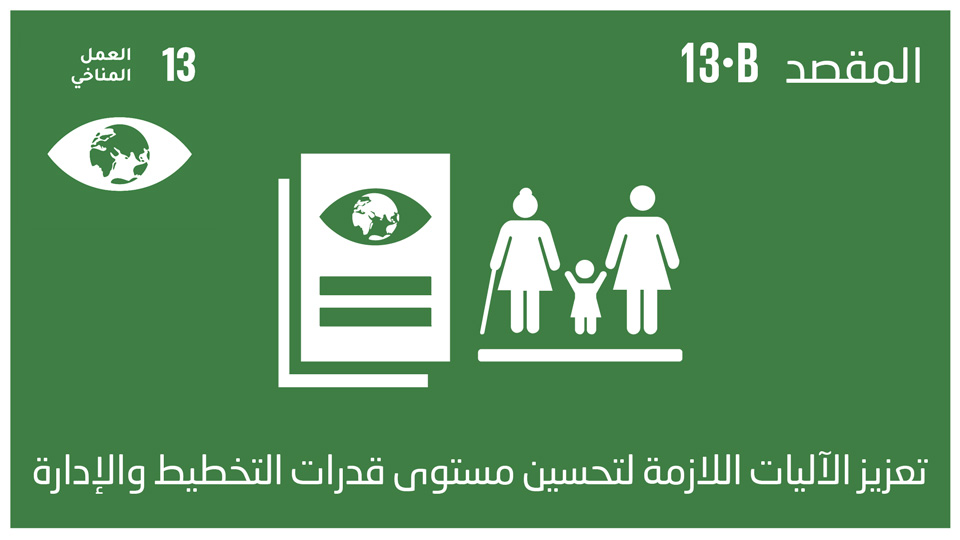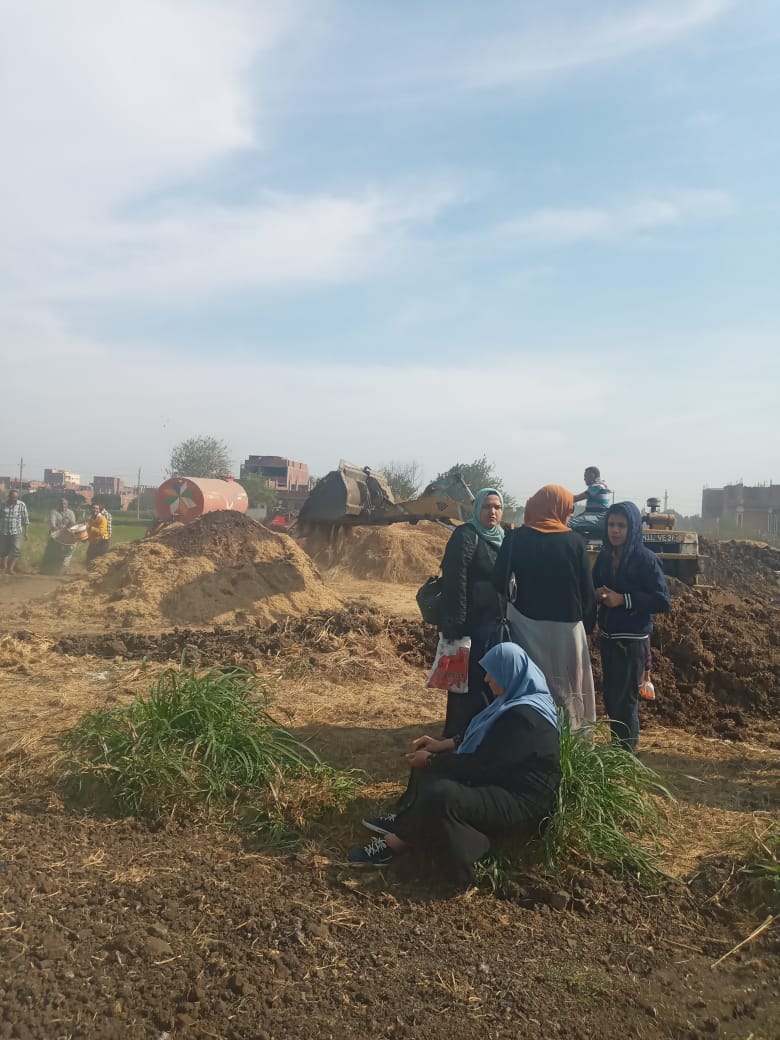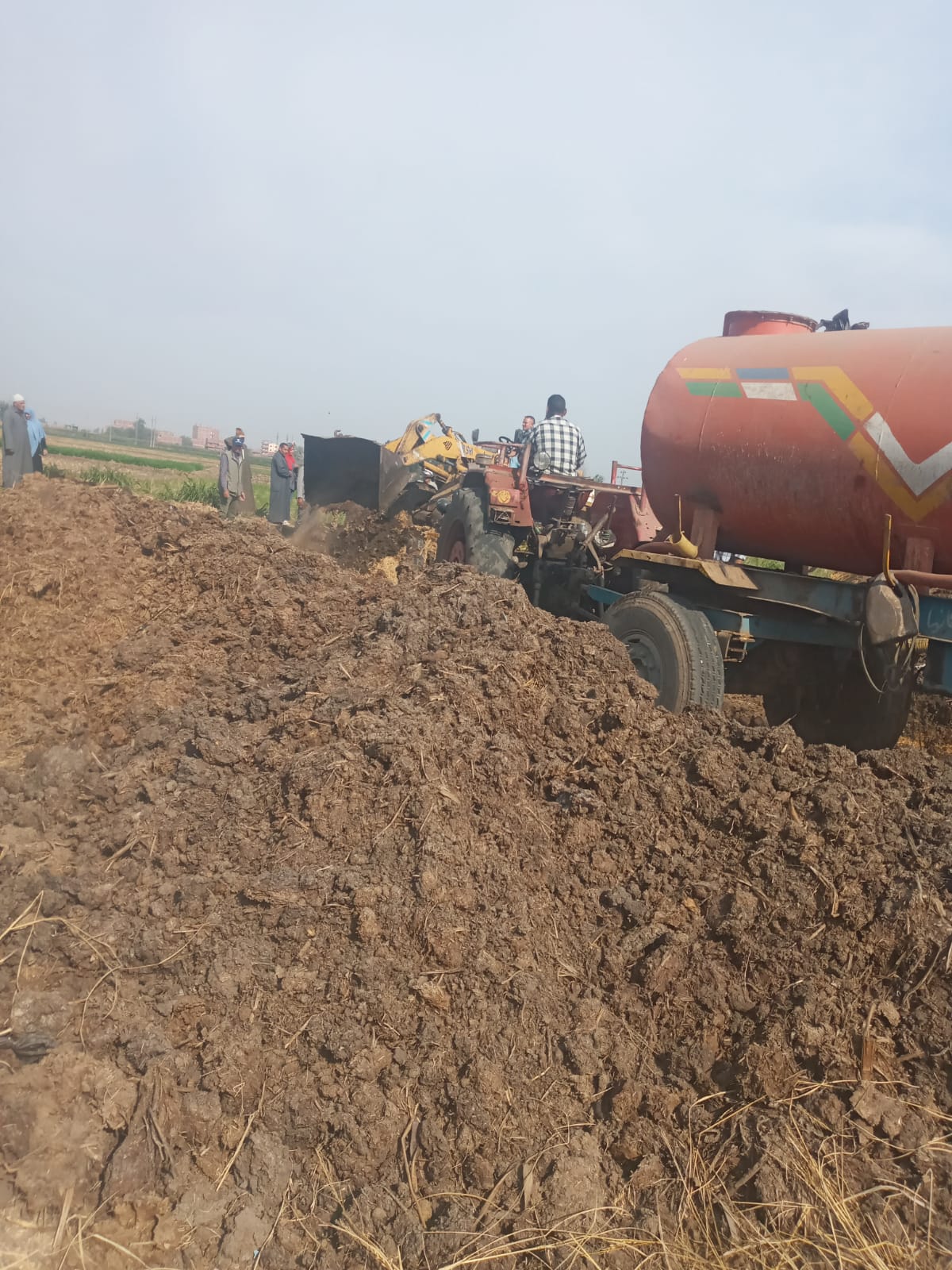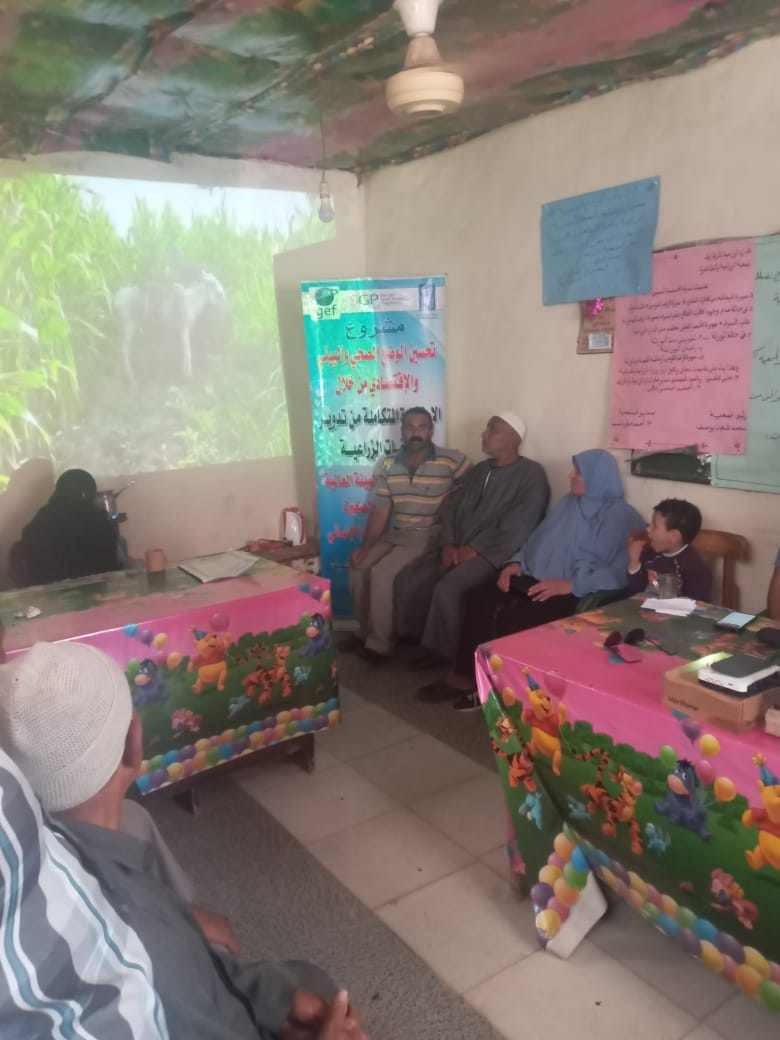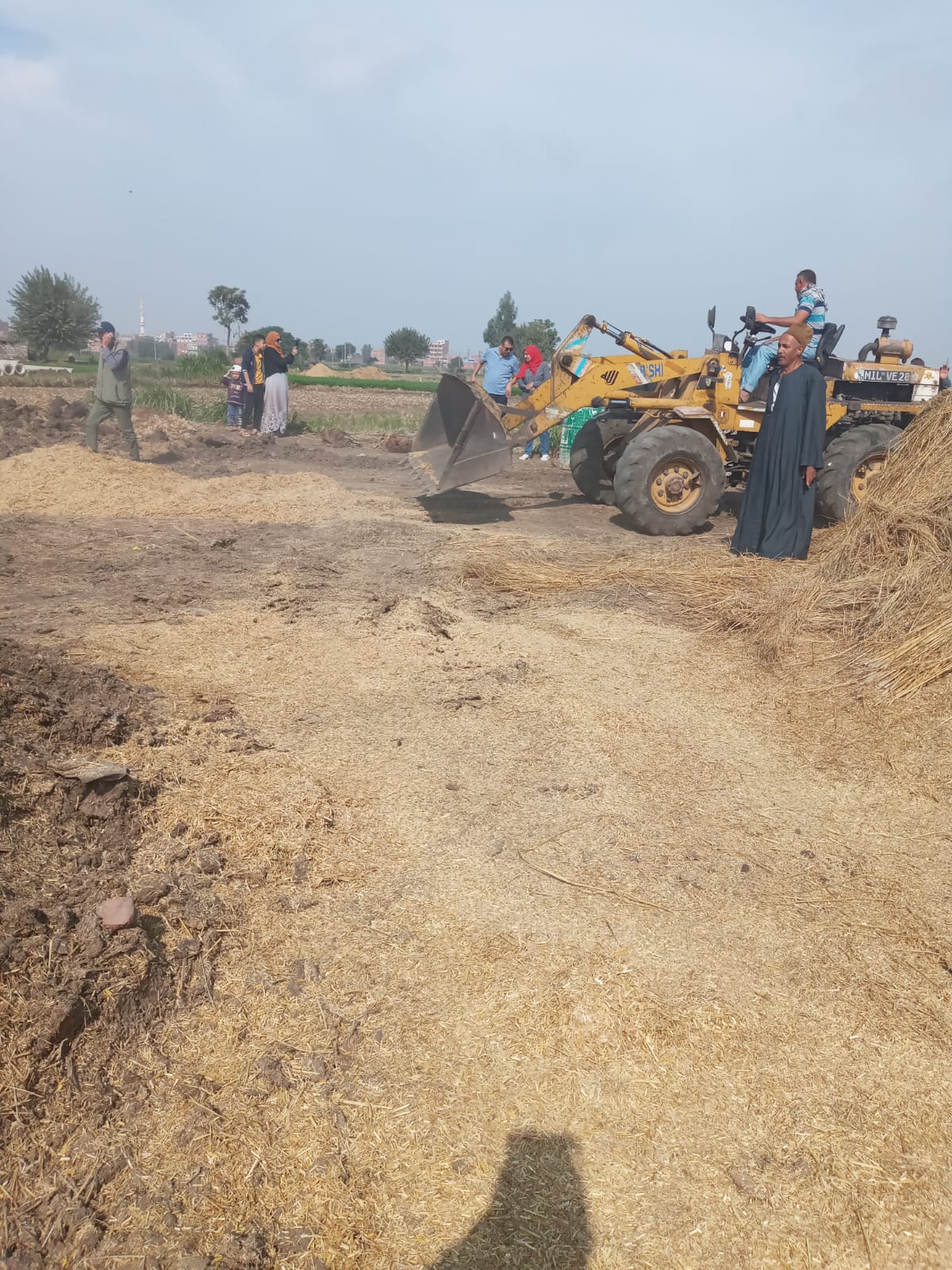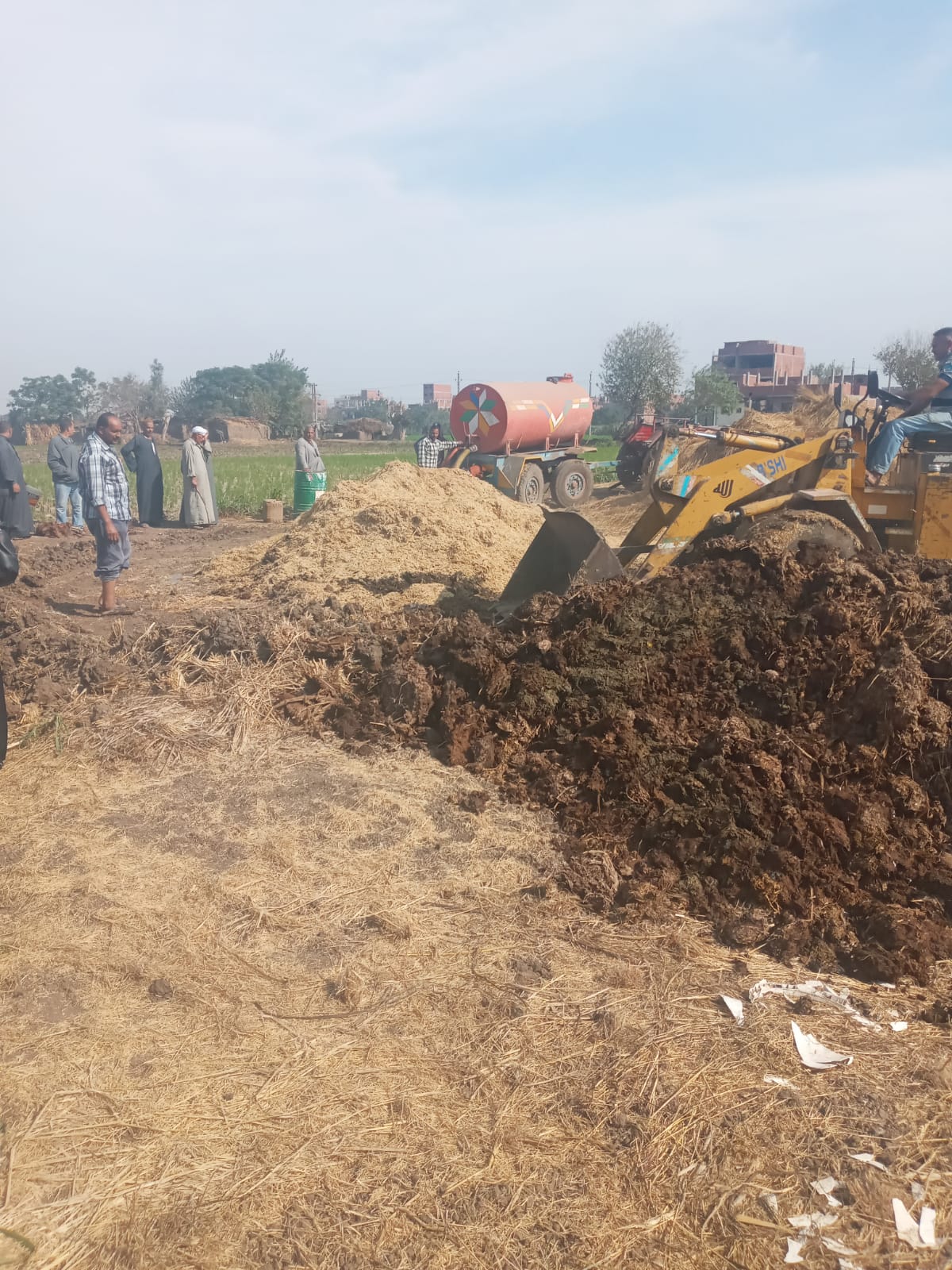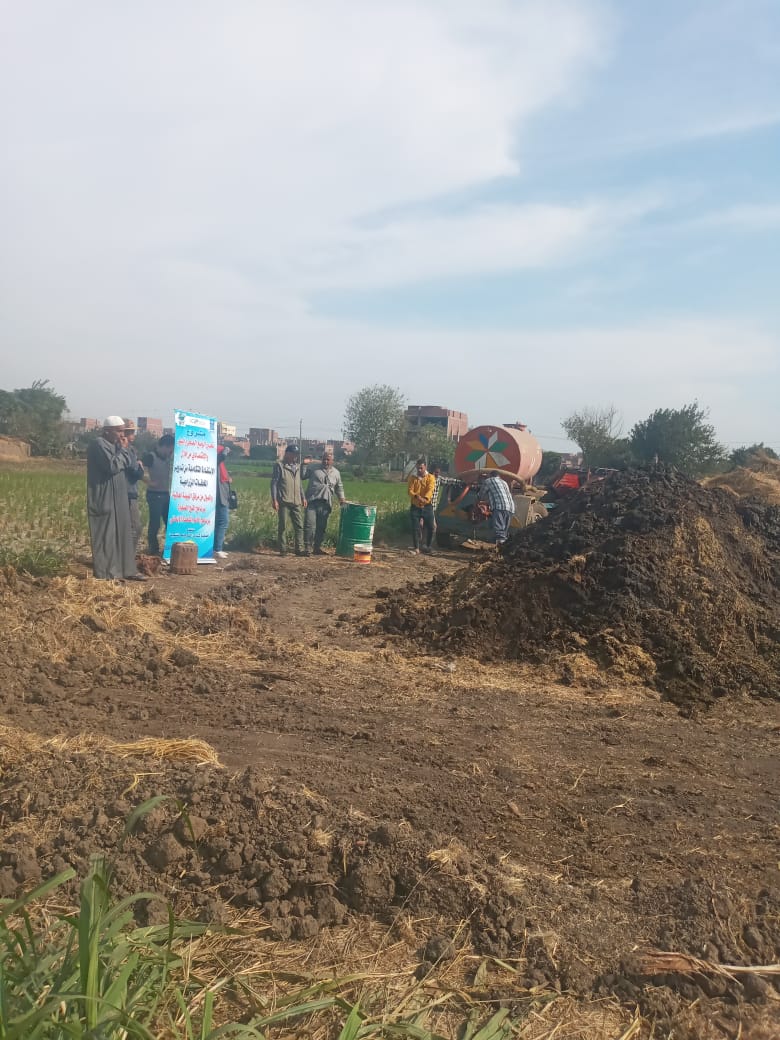Agricultural waste in the center of Zagazig constitutes an environmental problem in its own right because it leads to environmental pollution, if it is not recycled and utilized instead of being thrown away randomly, as is happening here now, where waste is thrown on the sides and edges of main and secondary roads, as well as on agricultural lands. The remaining or plant remains represent a great and great wealth if a person in the Egyptian countryside makes optimal use of it, but due to the lack of awareness among most individuals or lack of knowledge. By means by which these wastes or plant remains can be converted into useful things, small industries on these residues, such as growing and producing green fodder on these plant residues, as well as the production of mushrooms and other small industries on these plant residues, which are in the summer and during the fall season in large quantities, such as cottonwood - rice straw - cornstarch, which are the main crops that the farmer grows. However, in the winter season, these remains are exploited in agricultural activities such as wheat and barley hay, where the farmer exploits them in Feeding animals as coarse or dry fodder, with the addition of some grains or concentrated feed to these remains, so they do not become a problem for them, as the farmer exploits them in bedding in poultry farms, and thus they turn into fertilizers that farmers of vegetables, fruits, and desert lands flock to. This is in addition to the trellises and remains of vegetable plants such as tomatoes, cowpeas, and peas. Etc. Which humans dispose of by drying or feeding them directly to animals. Agricultural waste is defined as everything produced on the sidelines of agricultural production, harvesting, packaging and marketing.
The project works to make integrated use of agricultural waste (in three adjacent local units within the geographical borders of the center of Zagazig), namely (Bani Amer / Al-Shoubak Basta / Al-Aslouji) by recycling them and benefiting from them by converting them into organic fertilizer, which is used to raise the percentage of organic matter in the land and increase the biological activity of the soil because it is a source of food in some of its elements, so it increases microbial activity and thus increases Increases soil fertility and reduces the use of chemical fertilizers. Therefore, it has a great environmental impact and also an economic impact in reducing the cost used in producing the crop and reducing pollution because mineral fertilizers, no matter how high their purity, contain heavy toxic elements that lead to environmental pollution. They also address various environmental problems such as desertification problems. Increasing the organic matter increases the granularity of the soil and thus makes it cohesive and resistant to various erosion factors. Also, increasing the percentage of organic matter in the ground saves huge amounts of irrigation water by improving the water properties of the soil, increasing the efficiency of the plant’s water consumption and reducing the amount of water used for production. Hence, the use of agricultural waste as organic fertilizer and recycling of this waste has environmental and economic benefits and also addresses issues related to national security “Water
The project is related to recycling agricultural waste and converting it into organic fertilizer, with the goals of the Global Environment Facility, the Small Grants Programme. The project represents a model among the projects concerned with the persistent organic pollutants program and reducing environmental pollution rates and falls within the main areas of the program (climate change, biodiversity, persistent organic pollutants, and land degradation) and is being implemented in the Zagazig Center, Sharqia Governorate, one of the governorates that were chosen to implement the projects. The project is consistent with the national strategy and regional (local) strategies of Sharkia Governorate
